In depth with Triple Bogey founder Geoff Tait
Geoff Tait’s name may not be familiar to a lot of golfers, but he’s certainly well known to those of us in the golf industry. Geoff’s companies, on the other hand – Quagmire Golf Apparel and Triple Bogey Brewing – will be instantly recognizable to virtually every Canadian golfer who’s ever shopped for a golf shirt or ordered an adult beverage after a round. I recently caught up with the Toronto-based entrepreneur to discuss his intriguing career.
Welcome Geoff. One of our mutual colleagues tells me that when you were younger, you were in the PGM program at Humber College. Was being a golf pro one of the things that you thought you wanted to do?
Yeah. When I first started golfing, I was about six years old and my parents brought me to the St. Thomas Golf Club, and I would play on Sundays, and I really loved it. And then when I was 12, I started working at St. Thomas in the back shop, scrubbing hooks and picking the ranges and doing all that stuff, so during my teenage years, I thought I wanted to be a golf pro. I was working for a guy named Dan Campbell, who’s still to this day one of my mentors and great friends. And he kind of gave me my first big job in the pro shop, and I thought that’s what I wanted to do. So, I took the PGM program to be a golf pro but every time I took the playability test, I missed it by one or two.
The PGM program was wonderful. I learned a lot about business and the golf world – a lot that I’ve been able to put towards my golf career even though it hasn’t been necessarily in a golf shop. But it’s certainly been around golf with Quagmire and now Triple Bogey. Along the way, I taught golf on cruise ships, and I did all kinds of stuff that I could use from that program. And I met a lot of good people in the industry that I’ve kind of grown up with, and I’ve had a lot of great teachers like Grant Fraser and Kevin Thistle and Joe Murphy. They all taught back then. And so again, I got to network with a lot of people that I still know today that support us. It didn’t work out that I became a golf pro, but to be honest, I’ve had a wonderful career otherwise.
You first appeared on our radar with Quagmire. What attracted you to the apparel business?
After seeing what was available in pro shops at the time, I thought that golf needed its own young funky clothes. So, I had this idea of starting a golf clothing company and I knew I was going to call it Quagmire. I did a business plan while I was working on the cruise ships, so I was ready to go.
One of the jobs I had after I finished school was taking kids on a golf trip through Florida. The company was called West Coast Connections, and my job was to take these rich kids between the ages of 12 and 16 or 17 on kind of a fantasy camp where they got to play all the best golf courses in Florida like Bay Hill and TPC Sawgrass. On one of the trips, I met a guy named Bobby Pasternak who was from Toronto. As I got to know him on that trip, I found out that he had some good connections in different worlds that I kind of needed to have. He was keen on doing something too, so we formed a partnership, put the pedal down and away we went.
Quagmire was pretty popular at the time, especially with women and younger people. It offered something different from traditional fabrics and colours. How far did you take it?
Well, we started in 2005 and it went until about 2012. So, it was a good run. We started with Ontario and I used a lot of the contacts that I had from the PGM program. And then we kind of branched out into Alberta and the East Coast and BC, so we were a cross Canada brand within three or four years. And then we kind of ventured into the U.S., which was very cool, but also intimidating. We were starting to make the stuff in different countries and have it shipped into the U.S. and Canada, and we were selling to Dick’s Sporting Goods, Golf Galaxy, Golf Smith and so on.
By 2010, we had built a nice business in the US, which caught the eye of Arnold Palmer and his IMG group who actually gave us a call. That year, we joined forces with them. We had a licensing deal with Arnold and his crew to reinvent Arnold’s clothing for North America, and make them younger and cooler as well. So, Quagmire kind of branched into a very, very, very cool thing with the Arnold Palmer crew. And we got to do some amazing things with Arnold and his family and stuff that nobody can ever take away from me and I’ll never forget.
So, what was it like working with Arnold Palmer?
Arnold was amazing. The first time I met him, I had chills. It was unbelievable to be affiliated with him. And as I got to know him more, he was just so welcoming into his office, into his house, into his family. I literally went into the house that he grew up in Latrobe, Pennsylvania and went through all of his closets and all of his cupboards and pulled out all the stuff that he used to wear back in the day. I saw the pictures of Christmases and family memories, and it was just unbelievable to be that close to such a legend that lived such an amazing life.
In 2012, I went to the Masters with him. The par three contest got rained out, so I sat with him and Jack Nicklaus at Augusta for six hours and we drank vodka. Actually, Jack wasn’t there the whole time, but with Arnold for six hours and he told stories. That was pretty unbelievable.
But to work with Arnold really taught me how to treat people. It taught me what was important in business and just how to be a better person, to be honest. And I learned so much from him and his people and how he ran his business. And I’ve brought it into my own businesses to this day.
You created a new Arnold Palmer clothing line, and I recall Ryan Moore wore it on Tour. Tell us about that.
Ryan was our main ambassador. He was the guy that didn’t want to wear what everybody else was wearing, so we made him our first and at one point our only ambassador because he was already wearing cardigan sweaters, he was already wearing button-up shirts, he was already wearing the stuff that we were making. And for him, it was an honour to be affiliated with Arnold Palmer at that time when he was still alive. And the fact that Ryan Moore got to step into the family and be a part of Arnold’s legacy, he was very excited about that as well. He actually won a tournament, I believe, wearing the stuff, and he didn’t ask for that much money. And it was more of a great partnership that we built together because of Arnold’s legacy. And I’m sure Ryan Moore’s telling the story that he wore Arnold Palmer clothing to this day too, because he’d be very proud of representing the guy that brought golf to TV and did so much for the sport.
From the outside, that line looked like it was going strong, then it disappeared. What happened?
It was working really well. We had it for about four years. The designs were unbelievable. I still have some of the stuff in the cupboard. But we had some business partner problems, some issues amongst us. They had nothing to do with Arnold or the IMG people. We were still going strong. We were selling millions of dollars worth of stuff, but there was just some bad stuff happening amongst the partners.
It wasn’t bad to the point where we still talk to this day, but there were a few misunderstandings that didn’t settle well in other people’s bellies. And so unfortunately when that happened, we kind of had to cut the tie with Arnold and then we eventually wound down the Quagmire business and we all stepped away.
And I can honestly tell you that after it happened, I was devastated. I didn’t know what I was going to do and I was crying on my bedroom floor, but I would never look back and regret any of that. And to this day, we’ve sold more beer than we ever sold shirts, so I’m happier than can be, and I own the business and I don’t have to worry about anything like that happening again.
Was one of the things you learned that partners are not for you?
You better believe it! I’m going to hang on to this as long as I can. I started Quagmire myself, then it turned into 50-50 and then it turned into 25-25-25-25, and there’s four cooks in the kitchen, and it just didn’t work out the way that we had envisioned it. And those things don’t usually do. So, you live and learn and you carry on.
So, you were devastated at the end of Quagmire and the Arnold Palmer line. What made you turn to beer? I mean, other than maybe drinking it.
Yeah, I was drinking a lot. I was totally depressed. I was emotionally just wrecked. I’d lost the Arnold Palmer license and a business that I built out of my car.
So in between, I kind of said, what am I going to do next? I had a few job interviews. At one point I was going to drive from the Beaches here in Toronto to Brantford for a job of selling. I don’t even remember what it was, but I was going to be a salesman for another company. I got offered a couple other jobs within the golf business. My wife kind of took me aside and said, you’re not going to be happy doing these things. No offense to anybody that’s doing those things right now, but I just knew the entrepreneurial spirit inside me wouldn’t have been satisfied doing those things. And Megan knew it too. She knew I had to start something else. So, I actually went and taught marketing at Durham College for a year, and I saved up a little bit of money and I kind of got my shit together.
I got my spirit back at Durham. I was teaching business marketing in the golf management program and loved it; it was great. I was still affiliated with golf, which was exciting. And all the while I was building the business plan behind the scenes for Triple Bogey and trying to find somebody that would make the beer for us and building recipes and building the cans and the websites and all that stuff. And I did that for about a year, and then I got ready to launch and away we went again.
Did your launch coincide with the beginning of the craft beer craze?
Luckily, we were just ahead of that craze but still a lot of people thought I was crazy to go up against Molson’s and Labatt’s. All my buddies laughed at me. And I said, yeah, I’m doing it. I got nothing else to do. I got nothing to lose. So, they literally said, it’s not going to happen. And they’ll tell you that. I remember where I was when they said it. But we’ve sold millions and millions and millions now, and I’m happy that we got in when we did and in this little niche.
You don’t brew your own beer, you have it made under contract, is that right?
Yep, we contract it at a place called Equals Brewing in London. There’s a lot of other brewers that have come to us and asked if we would make our beer there and our cocktails, and I mean a lot because they know what kind of volume we’re doing. Before the world of contract brewing became accepted, everybody looked down their nose at it. They said you’re not a real brewery if don’t make your own stuff. But to be honest with you, the only way to get started in the beer world is to find somewhere to make it or else you’re going to dump a lot of money into brewery equipment on the hope that it works. That’s fine if you’re sitting on a gold mine of money that you’re ready to gamble but most people start with contracting.
And if it works, it works. We actually started at Great Lakes here in Toronto, and then we kind of outgrew them. They were wonderful but they just couldn’t get out what we needed on a weekly basis. They had their own stuff to worry about, and I don’t blame ’em. So, a couple guys from London that I’ve always known, they were Redtail guys from St. Thomas, they gave me a call and said, if we build this brewery, would you come and be one of our customers? And they had the capacity. They still have the capacity. That was a pretty easy decision.
These guys know what they’re doing. It’s a great partnership. We got a great deal. They treat us very, very well. It’s like us having our own brewery because they treat us like that, but at the same time, we don’t have the expenses. Yeah, we’re paying a little bit more for the beer rather than making it ourselves, but I don’t have to worry about fixing the canning line or doing all that stuff that they have to worry about and we can be out selling, marketing and running this business. So, it’s a perfect partnership.
Did you have a penchant for a certain type of beer when you started? Craft beers are all over the map with flavors and things, but the Triple Bogey offering is, I don’t want to insult it by saying it’s basic, but it’s consistent with traditional mainstream beers. It’s not way out there.
When you call it basic, it’s a compliment, my friend. Don’t worry. That’s exactly what we want to be because we want the masses to drink our beer. Our first product, the one that comes in the green can, we sell over a million cans of it a year in the summer. We have a new Ultra beer, which has just come out. It kind of took the place of our light beer and the Ultra beer is now low calorie, low carb, but it has taste. Everybody says it’s better than the other Ultras out there. Thank you. But they’re both basic beers. They’re both great drinking, easy drinking, especially in 35 degree weather like we have right now. And that’s all we’re ever going to build. We tried to build an IPA last year that people asked for but it just didn’t sell. There’s no place for an IPA on a golf course where you’re sweating and hot and you’re thirsty. There is a place for an IPA in the winter on the back deck, and maybe you’re going to drink one or two. But we want to sell a lot of beer, so what we make are good solid drinking lagers. Sure, they compete with the top selling beers in the world like Molson Canadian and Bud Light, whatever. But that’s where the biggest market is too.
What brought about the introduction of the liquor products, Transfusion and flavoured cocktails?
The Transfusions were a giant drink in the States. Everybody kept saying, “Oh, you gotta do a Transfusion.” So, we go down to Florida, we try them, their Transfusions are delicious. It’s amazing when things are viral; they catch on and run for a few years, and then there’ll be something else. Beer is good, but beer is also very populated. You’re constantly fighting for taps and going up against a lot of players. Things like Transfusion give us an alternative, particularly when you’re first. If you can find something that could catch fire, like Transfusion did the first year, we sold a couple million cans at the LCBO.
We’re bringing out another drink this week that’s down in the States and has gone viral on TikTok and social media. It’s crazy. We’ve never done this before, but we’re bringing out a drink in the middle of summer because we want to beat the other guys. We know that they’re all going to copy it.
Now we’re not just in the beer business, we’re in the cocktail business too and we mix every drink that we make. We make it taste exactly like you would mix it at home. And that’s kind of the difference. We’re not putting a watered down seltzer in a can that doesn’t have any flavour because it doesn’t have any calories, it doesn’t have any sugar. Ours have a bit of sugar, but at the same time they’re full of flavor, and people seem to love them. So, we’re running with the cocktail business as much as we can. And we think that’s the section of our business that will continue to grow. Cocktails are a hell of a lot easier to make and quicker to make than beer because you have to wait three to four weeks for beer, where cocktails you can mix up in a couple days as long as you have the ingredients. So, it’s kind of like a machine that can keep us running while we wait for the beer to be made. It’s been a great addition. I never thought we would sell as much as we did but we doubled our business from two years ago to last year and we were already doing a decent business.
What do you like about the golf business?
I love the golf business. I’ve been in the golf business since I was six. I’ve been working in the golf world since I was 12. I love the people. I love that we’re all a community. When somebody comes and decides that they’re going to start a golf themed beer and slap a label on it, I love it when people call me and say, this guy just showed up that nobody knows who they are and nobody cares who they are. And they send them out the door laughing because they already have Triple Bogey in their fridge. I’ve built support, I’ve built relationships, I’ve built friendships. Without the golf business, our business wouldn’t exist.
But I just love the people; people like you that I’ve known for 25 years or Grant and the golf journalists, all of the golf course owners and people that work there. And then what we also love is we have products that the cart girls want to sell, and they’re excited to see us when we get there. It’s just nice man. People have really supported us and they love us for whatever reason. And I have a great team too. Charles is my right hand man; he’s an Australian guy and the girls love his accent. He’s turned himself into a good businessman. He started driving for me and now he’s my vice president of sales, and that’s allowed me to take a few hats off and do other things, bigger picture things or whatever. And I feel so lucky to be part of this golf thing.
How’s your own golf game?
I don’t play very much anymore. I got two kids and a wife and a business to run. So, I’ll play six or seven rounds a year, but when I do play, I play the best of the best usually. I played Crowbush a couple of weeks ago and a few holes at Fox Harbor. I am going back to Cabot in September, stuff like that. And I’ll play in a couple of celebrity golf tournaments too. Not that I’m the celebrity, but I’ll be invited to play with some Blue Jays or whatever. I really enjoy playing those because there’s no pressure on me. I don’t have to be good even though I used to be decent.
Family’s been a big part of what you talk about when you’re discussing Triple Bogey. Tell us what that means to you.
Yeah, family’s obviously the most important thing. I work this hard because of my family, to feed my family, to have a roof over their heads. Megan and I started this business together. I think we waited a year before she quit her job to make sure that this was going to work. So, in 2015, I think she started working for Triple Bogey full-time, but she was still working before that. And then she was kind of doing the LCBO stuff and doing the invoicing, while I’d be out selling and delivering. She’d deliver sometimes too in our little car. And then we had a kid, Sawyer in 2017 who changed my life, made my priorities a lot different than they used to be. I never thought I wanted to have kids, but now I couldn’t live without them.
But Sawyer’s like my best buddy, and he comes up with ideas, man. He comes up with ideas all the time. He came up with the Orange Transfusion. He’s a proud Triple Bogey guy, and he’s only eight. He has been doing it for a couple of years and he’s just proud of his family and what we do. And also this business allows me some flexibility. I work two blocks away from my house, which is amazing and I can be around my family and be home for dinner when I need to be. And I have a daughter, Fiona, who’s three, who’s a wonderful little girl. I didn’t think she could be as good as Sawyer, and I didn’t know if I had room in my heart for her, but I certainly do. And now we have two beautiful kids that are wonderful and that’s what matters. Yeah, family. That’s it, man. That’s why we keep going to work and keep doing what we do.
What’s the hardest thing you’ve had to do in your career?
The hardest thing would be to restart. After Quagmire, I was genuinely, completely depressed. I cried all the time. I didn’t know. I had no idea how to do it again. We had Quagmire up to five, six, seven million; I was driving a BMW, flying down to Bay Hill, flying to Augusta. hanging out with celebrities like Jay-Z and all these guys. I’d go wow, what kind of life am I living here? And then it went from that to getting my BMW taken away and driving a Nissan Sentra. I was living in a little apartment. We were going to try to have a kid but I didn’t have a career. I literally was drinking too much. That was the hardest thing – to get out of that, to where I’m sitting here today in the best shape of my life. I’m proud, I’m happy.
We’re flourishing. We’ve got a 10 million plus business and couldn’t be happier. But the hardest thing is to rebuild and have the energy to do it all over again after something that was really great falls apart. And there was no real reason for that to have stopped in the first place. If it was a failing business and we all needed to get out of it, then it would’ve made sense. But there was no real reason for this to have stopped and the fun to have come to an end. Maybe there was too much fun being had and that’s why it had to stop. But yeah, that would be the hardest thing.
You may have already answered this the way you answered the last question, but what’s the most satisfying thing that you’ve done?
I would say, yeah, two things. Well, I better say three things. First, getting married to Megan,
Of course.
And the second thing would be having kids and watching them grow up and being a part of their life and not having to be a delinquent dad and being able to support and love my family.
And the third thing was to reinvent myself and to start another business and to just keep going. And if I have to do it again after this, I’ll do it again. I don’t know if I’ll be as successful, but I’m fucking happy now, man.
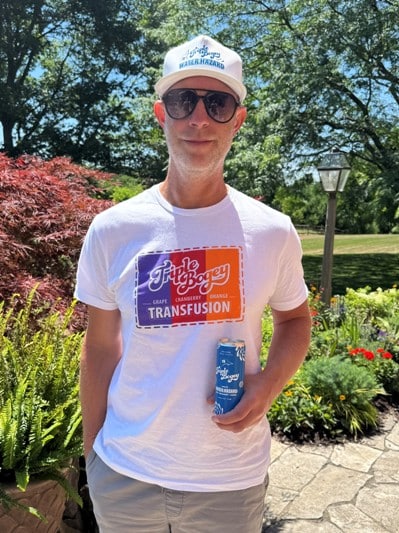
Last question, what’s next for Triple Bogey and for Geoff Tait?
Well, for Triple Bogey we have a new drink and it’s called the Water Hazard, so you’re hearing it first. We just sent around an email to all of our accounts that it’s coming out right away, It’s another drink that’s huge in the States – a Gatorade vodka. It’s blue raspberry Gatorade, vodka, Ginger Ale or Sprite Lemonade, and it’s delicious. We think it will be the next big thing. Everybody’s making a Transfusion now so we have to make something new. We were going to bring it out next year but decided to do it now because people are going to copy it. So, we’ll be first to the party.
What’s going to happen with me? I don’t know. I enjoy my job. I love my crew, I love my business, I love everything that I do. Can I do this for the next 10 years? Sure. If there’s something comes along that I’d rather do. I’ll figure that out. But I’ll always be an entrepreneur and I’ll always be having fun and I’ll always keep building what I can build and hopefully that allows me to support my family, to support my life and have fun.
Geoff, that’s awesome man! Is there anything you want to add that I didn’t ask you?
No, I think you did pretty good there, to be honest. Covered everything. Yeah. I appreciate that. Are you putting this on video or a podcast?
No, it’s just a written piece. If it was going be a video, I would’ve done something with my hair. Anyway, thanks again Geoff. Great chatting with you as always.

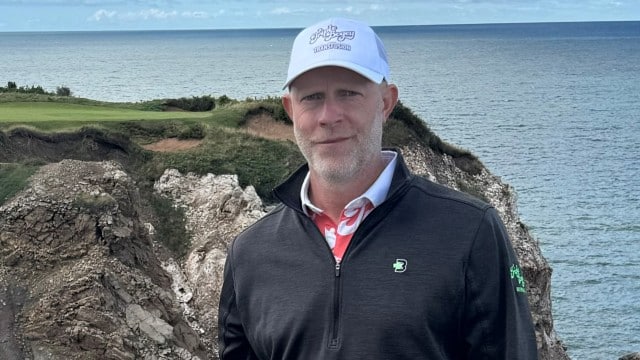
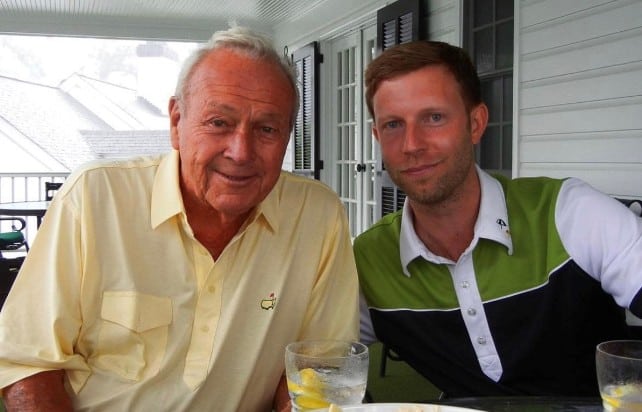
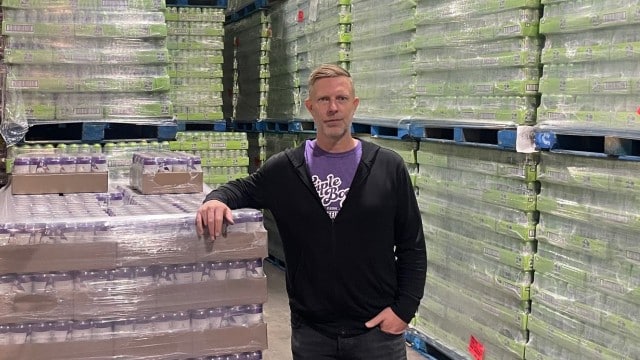
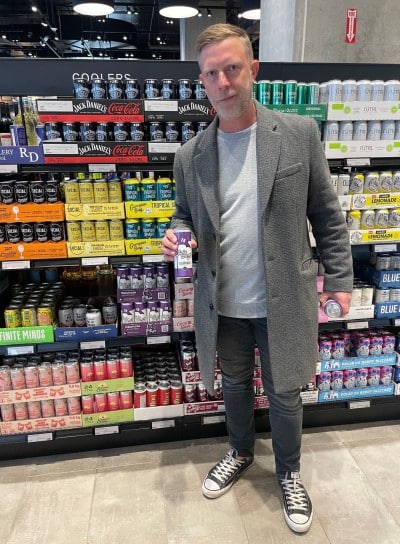


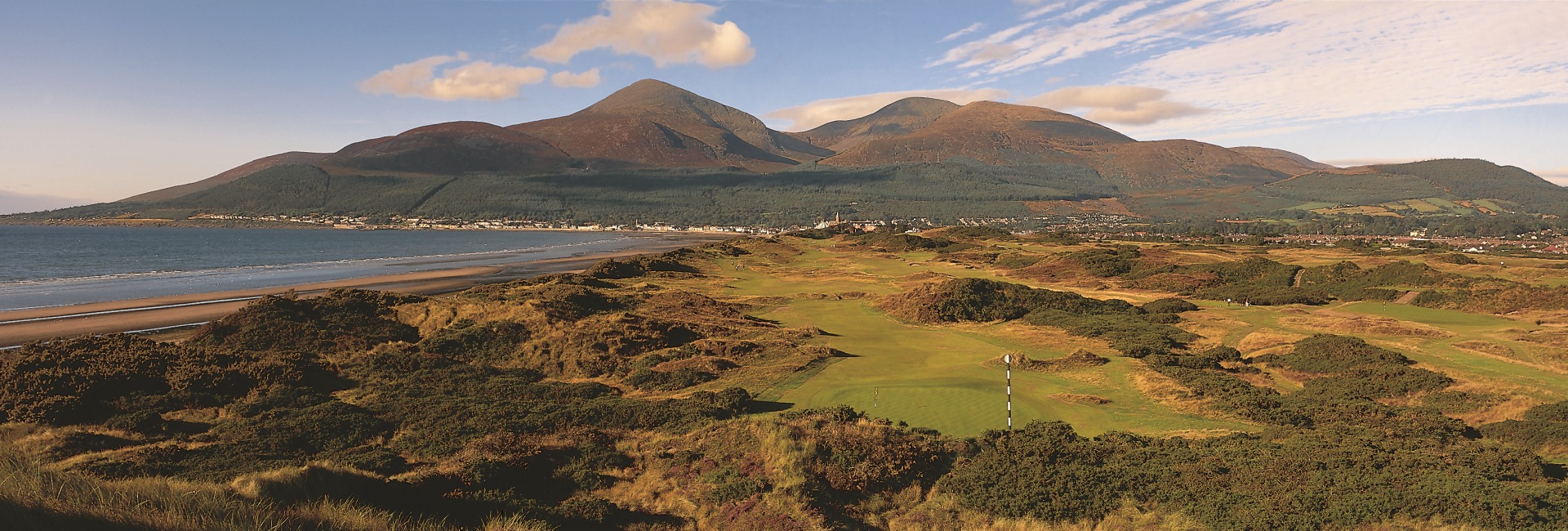


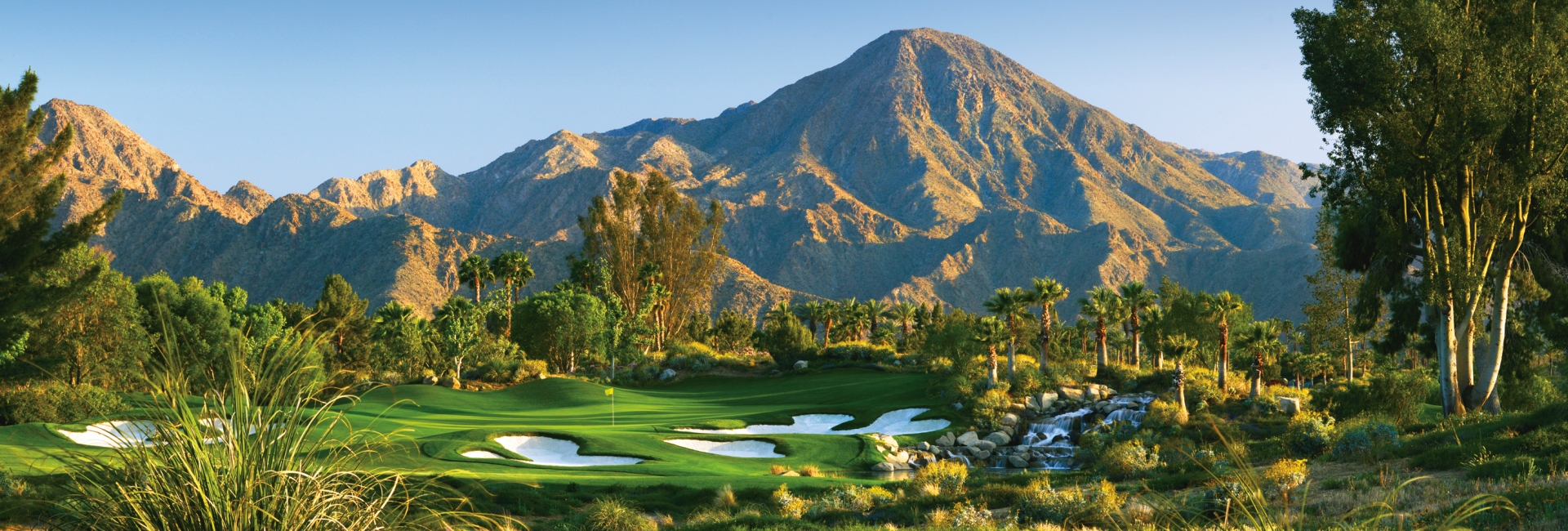
Great read Peter.
I was so interested in learning about the rapid rise of Triple Bogey!
Smart to jump on the “Water Hazard “ too. I learned that one from a Vegas cart girl. She mixes those and they look refreshingly delicious
https://www.instagram.com/jennnbellee?igsh=cTJldmphamRhY2Ft